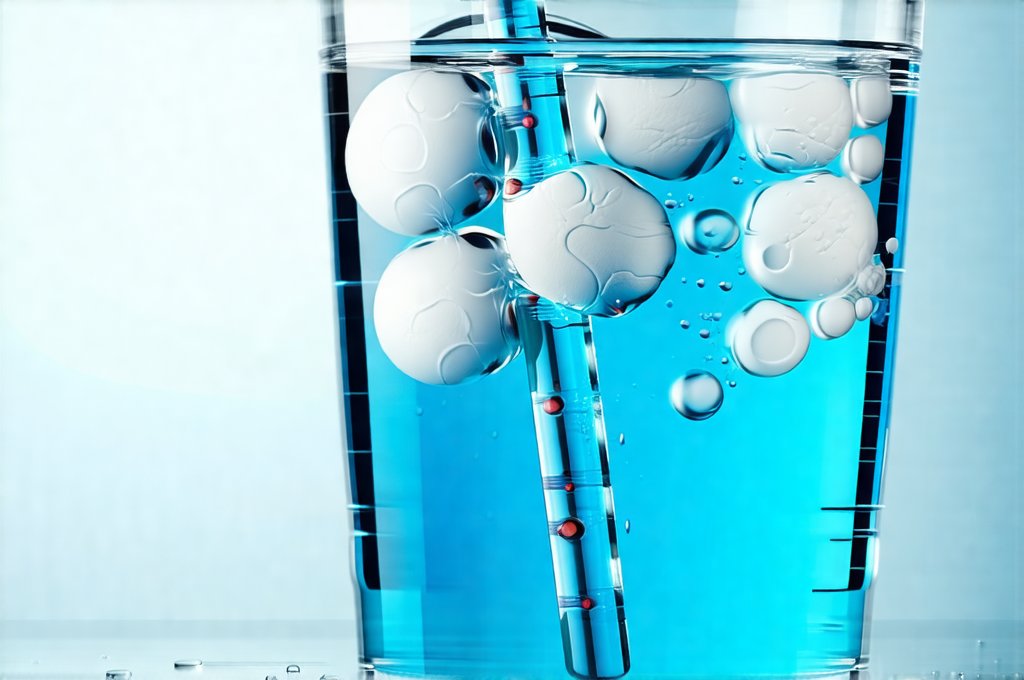Maintaining adequate hydration is foundational to overall wellbeing, yet many people struggle with finding a routine that doesn’t exacerbate digestive discomfort. The conventional wisdom of “drink eight glasses of water a day” often falls short because it fails to account for individual needs and, crucially, how we drink fluids during and around mealtimes. For those prone to bloating, indigestion, or conditions like IBS, simply increasing water intake can sometimes worsen symptoms rather than alleviate them. It’s not enough to just hydrate; it’s about understanding the interplay between fluid consumption, digestive processes, and personal sensitivities to create a hydration strategy that supports – rather than hinders – gut health.
The key lies in recognizing that digestion is an energetically demanding process. Our bodies prioritize blood flow to the digestive system when we eat, and introducing large volumes of cold liquid can dilute digestive juices, slow down motility (the movement of food through the digestive tract), and potentially overwhelm the system. This isn’t about avoiding water altogether; it’s about being mindful of timing, temperature, and quantity to optimize both hydration and digestion. A successful routine is one that minimizes disruption to these delicate processes, leading to greater comfort and nutrient absorption. Considering what foods don’t cause trouble can also support this process.
Optimizing Hydration Timing for Digestive Comfort
The most significant impact on digestive health comes from when we consume fluids in relation to meals. Rather than chugging water with or immediately after eating, focusing on hydration between meal times is far more beneficial. This allows the body to dedicate its resources to breaking down food without dilution or interference. Think of it as respecting the natural rhythm of digestion – giving your system the space and energy it needs to work effectively.
Consider a strategy that involves sipping water consistently throughout the day, but pausing hydration 30 minutes before, during, and up to two hours after eating. This allows digestive juices to remain concentrated and facilitates optimal food breakdown. The specific timeframe may vary depending on individual tolerance – some individuals might find they need longer periods without fluid intake – but the principle remains the same: avoid overwhelming the digestive system when it’s actively working. Furthermore, small, frequent sips are generally easier on the digestive system than large gulps of water. Learning about feeding schedules can also help with timing around meals.
Many people report significant improvement in bloating and indigestion simply by adopting this timing strategy. It’s a relatively simple adjustment that can yield substantial benefits for those struggling with digestive sensitivity. It’s also important to note that different foods require varying degrees of hydration support – heavier, more complex meals might necessitate slightly longer pauses before rehydrating.
Temperature Matters: Warm vs. Cold Liquids
The temperature of your fluids plays a surprisingly significant role in digestion. Cold water can constrict blood vessels and slow down digestive processes, making it harder for the body to break down food efficiently. This is particularly true for individuals with sensitive digestive systems. Conversely, warm or room-temperature liquids are generally easier on the gut and promote better absorption.
- Warm water helps to soothe the digestive tract and can even aid in detoxification by promoting bowel movements. Herbal teas (ginger, chamomile, peppermint) at a comfortable temperature can be exceptionally beneficial – but always check for potential interactions with medications or existing health conditions.
- Room-temperature water is often the most neutral option, minimizing disruption to digestive processes without causing discomfort.
The ideal temperature is subjective and depends on personal preference, but generally leaning towards warmer fluids is a good starting point if you’re experiencing digestive issues. Experimenting with different temperatures can help you identify what feels best for your body. Don’t underestimate the impact of this seemingly small detail – it can be transformative! This is especially important when considering morning beverages and how they set up your digestive system for the day.
Beyond Water: Hydrating Foods & Alternatives
Hydration isn’t solely about drinking water; a significant portion of our fluid intake comes from the foods we eat. Incorporating hydrating foods into your diet is an excellent way to support overall hydration without placing additional stress on your digestive system.
- Fruits like watermelon, strawberries, and oranges have high water content.
- Vegetables such as cucumbers, celery, and lettuce are also naturally hydrating.
- Soups and broths can provide both hydration and nutrients in a readily digestible form – opt for lighter broth-based soups rather than heavy cream-based ones.
Beyond plain water, consider alternatives that may be easier to tolerate:
1. Herbal teas (as mentioned above)
2. Coconut water (in moderation due to its natural sugars)
3. Infused water with fruits or herbs (cucumber and mint is a refreshing option)
4. Diluted fruit juice (again, in small amounts)
These alternatives can add flavor and variety to your hydration routine while minimizing potential digestive discomfort. The goal isn’t just about reaching a specific fluid intake number; it’s about finding a sustainable and comfortable approach that supports both hydration and gut health. Thinking about simple snacks can also help you stay hydrated throughout the day.
Electrolyte Balance & Digestive Function
Electrolytes – sodium, potassium, magnesium, and calcium – are essential for maintaining proper fluid balance and supporting various bodily functions, including digestion. When electrolyte levels become imbalanced (often due to dehydration or excessive sweating), it can disrupt digestive processes and lead to symptoms like bloating, cramping, and constipation.
- Sodium helps regulate fluid balance and nerve function.
- Potassium supports muscle contractions, including those in the digestive tract.
- Magnesium aids in bowel regularity and reduces inflammation.
Replenishing electrolytes can be particularly important during periods of increased physical activity or hot weather. While sports drinks are one option, they often contain high levels of sugar and artificial ingredients. A healthier approach is to focus on electrolyte-rich foods:
1. Bananas (potassium)
2. Spinach (magnesium)
3. Coconut water (electrolytes)
4. Small amounts of sea salt in your diet (sodium)
You can also create homemade electrolyte drinks using natural ingredients like lemon juice, honey, and a pinch of sea salt. Maintaining proper electrolyte balance is crucial for optimal digestive function and overall hydration – it’s often overlooked but plays a significant role in gut wellbeing. It’s about creating a holistic approach to hydration that considers not just the quantity of fluids you consume, but also their composition and your body’s individual needs. To support this, consider post-meal routines to aid digestion.
Ultimately, finding a hydration routine that doesn’t disrupt digestion is a personalized process. There isn’t a one-size-fits-all solution, and what works for one person may not work for another. The key is to listen to your body, experiment with different strategies, and prioritize mindful hydration practices. By focusing on timing, temperature, electrolytes, and hydrating foods, you can create a routine that supports both optimal hydration and a healthy digestive system, leading to greater comfort and wellbeing. Remember, it’s about creating a sustainable lifestyle change rather than striving for perfection – small, consistent adjustments can make a world of difference. Incorporating low-pressure fitness routines alongside your hydration plan will further support digestive health. Finally, if you experience ongoing issues, consider how everyday meals can be adapted to reduce triggers.


















